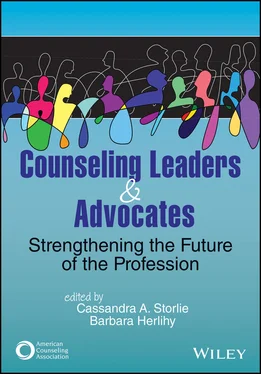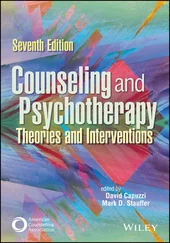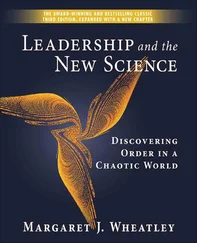Counseling Leaders and Advocates
Здесь есть возможность читать онлайн «Counseling Leaders and Advocates» — ознакомительный отрывок электронной книги совершенно бесплатно, а после прочтения отрывка купить полную версию. В некоторых случаях можно слушать аудио, скачать через торрент в формате fb2 и присутствует краткое содержание. Жанр: unrecognised, на английском языке. Описание произведения, (предисловие) а так же отзывы посетителей доступны на портале библиотеки ЛибКат.
- Название:Counseling Leaders and Advocates
- Автор:
- Жанр:
- Год:неизвестен
- ISBN:нет данных
- Рейтинг книги:5 / 5. Голосов: 1
-
Избранное:Добавить в избранное
- Отзывы:
-
Ваша оценка:
- 100
- 1
- 2
- 3
- 4
- 5
Counseling Leaders and Advocates: краткое содержание, описание и аннотация
Предлагаем к чтению аннотацию, описание, краткое содержание или предисловие (зависит от того, что написал сам автор книги «Counseling Leaders and Advocates»). Если вы не нашли необходимую информацию о книге — напишите в комментариях, мы постараемся отыскать её.
Counseling Leaders and Advocates — читать онлайн ознакомительный отрывок
Ниже представлен текст книги, разбитый по страницам. Система сохранения места последней прочитанной страницы, позволяет с удобством читать онлайн бесплатно книгу «Counseling Leaders and Advocates», без необходимости каждый раз заново искать на чём Вы остановились. Поставьте закладку, и сможете в любой момент перейти на страницу, на которой закончили чтение.
Интервал:
Закладка:
We are honored to present their stories, and we are painfully aware that many other exceptional leaders and advocates are equally deserving of recognition. Advancing our profession actually does “take a village,” and the full community of highly influential leaders and advocates is much, much larger than the exceptional individuals we introduce here. Our hope is that these stories will inspire you and guide you on your own path toward leadership and advocacy.
Part III: Synthesis & Concluding Thoughts
Chapter 17, Synthesis , contains a thematic analysis based on the profiles of the selected leaders and advocates. We enlisted two coauthors, an assistant professor and a doctoral student, who both have a strong interest in leadership and advocacy, to assist us in this analysis. Their engagement helped ensure that our theme identification process would represent the perspective of our readership. We discuss how the themes they discovered relate to the current literature on leadership and advocacy, both reinforcing what we know and extending our understanding as we look toward the future. This analysis reflects how the 13 leaders/advocates profiled related to and differed from one another in the spirit of strengthening the profession. A variety of reflective questions encourage you to deepen your connections to leadership and advocacy in the field of counseling.
In Concluding Thoughts , we offer our thoughts on the work as a whole and the wisdom shared by leaders as they look toward the future.
Considerations and Suggestions for Readers
We encourage you to spend intentional time reflecting on your own thoughts about counseling leadership and advocacy as you read this book. How do you understand these processes? Where are the gaps, and what remains to be done? You are the future generation of counseling leaders and advocates, and we invite you to pause and reflect on this question as you read: What motivates you in your aspirations to become a leader/advocate?
It is easier for us to answer that question as it relates to advocacy. Advocates are driven by a passion to make positive change in the lives of their clients, in the systems that contribute to marginalization and oppression of clients and client populations, and in the profession to increase our capacity to reach out and help those in need. What types of advocacy stand out for you as you read the profiles of our leaders?
What drives people toward leadership seems a bit more complex. As you will see, some leaders had a desire to lead from an early age, whereas others found themselves in leadership positions seemingly by happenstance. What kinds of leadership do we need to see more of to strengthen the profession of counseling? If you are a new counseling professional or a counseling student, this may feel like a daunting question. But those of you a little further along in your counseling career may have already established as interest in engaging leadership. Making space and time for leadership and advocacy initiatives can be a part of your regular practice, and we hope the practical suggestions in this book will assist you in reaching your goal.
Getting the Most Out of This Book
We believe you will get the most out of this book by having some brief, introductory knowledge about leadership theory and philosophy. Most notably in the counseling profession, you will come across the term servant leadership , which was first introduced by Robert Greenleaf in 1970. Greenleaf believes leadership begins with wanting to serve, and this service is followed by aspiring to lead. Servant leadership “shares power, puts the needs of others first and helps people develop and perform as highly as possible” (Center for Servant Leadership, 2020). Eva et al. (2019) described servant leadership as “a holistic leadership approach that engages followers in multiple dimensions (e.g., relational, ethical, emotional, spiritual), such that they are empowered to grow into what they are capable of becoming” (p. 111). Greenleaf (1970) emphasized how servant leaders help others grow and “become healthier, wiser, freer, [and] more autonomous” (p. 15). Servant leaders have a strong impact on the community and on their followers, and they inspire others to become servant leaders.
Servant leadership blends well with the underpinnings of the counseling profession—taking care of others and helping others to develop. Although servant leadership is often described as the core of counseling leadership practices, it is important to acknowledge that counselors embrace a variety of leadership theories. You will find a few of the following theories woven into the stories of our profiled leaders.
Authentic Leadership
Authentic leadership has been defined from intrapersonal, interpersonal, and developmental perspectives, all of which are characterized by their genuine, relational, and ethical qualities (Northouse, 2019). George (2003) identified authentic leaders as having the dimensions of purpose, values, relationships, self-discipline, and heart. George asserted that the characteristics of passion, connectedness, consistency, and compassion are required of authentic leaders. As you consider the qualities and personal traits that influence your understanding of leadership, what traits do you notice among our profiled leaders? What characteristics do you see within yourself as a future leader in our profession?
Transformational Leadership
Transformational leadership is “the process whereby a person engages with others and creates a connection that raises the level of motivation and morality in both the leader and the follower” (Northouse, 2016, p. 162). Transformational leadership encompasses four basic dimensions: inspirational motivation, intellectual stimulation, individualized consideration, and idealized influence (Piccolo & Colquitt, 2006). These dimensions appear to meaningfully overlap with dimensions of the therapeutic counselor–client relationship (e.g., inspiration/hope, contextual considerations). Transformational leadership has been notably visible in the school counseling profession (Gibson et al., 2020).
Adaptive Leadership
Adaptive leaders “prepare and encourage people to deal with change” (Nort-house, 2016, p. 257). Adaptive leaders encourage effective changes over multiple levels, from those as finite as the self to those as infinite as our global society. Using a systems approach, adaptive leaders try to understand the complexities of problems and provide supportive environments for their constituents. In the face of the ongoing coronavirus pandemic and the social unrest that revolves around inequalities in the United States, it is important for each of us to have an understanding of adaptive leadership. Change continues to shape our behaviors as we navigate through the upheaval of these times. How can we be reflexive and encourage others to change and learn new ways of living together so that all of us will be successful and can grow?
• • •
This brief review of leadership theories provides a mere sliver of the depth that they encompass. Only a few of the profiled leaders specifically name a leadership theory that guided their work, but you will find traits, skills, procedures, and philosophies that are common to both leadership theories and counseling practice in these stories. They all, in one way or another, speak of leadership as a process of empowering others and as an opportunity to advocate. None of the leaders espouse a traditional view of leadership as a power-over position; rather, they speak of “leading from behind,” working “behind the scenes,” and “leading by doing,” not for their own aggrandizement but to move our profession forward and improve services to our clients. One can deduce that leadership in counseling is ineffective when leadership practices move away from our core values as professional counselors.
Читать дальшеИнтервал:
Закладка:
Похожие книги на «Counseling Leaders and Advocates»
Представляем Вашему вниманию похожие книги на «Counseling Leaders and Advocates» списком для выбора. Мы отобрали схожую по названию и смыслу литературу в надежде предоставить читателям больше вариантов отыскать новые, интересные, ещё непрочитанные произведения.
Обсуждение, отзывы о книге «Counseling Leaders and Advocates» и просто собственные мнения читателей. Оставьте ваши комментарии, напишите, что Вы думаете о произведении, его смысле или главных героях. Укажите что конкретно понравилось, а что нет, и почему Вы так считаете.












